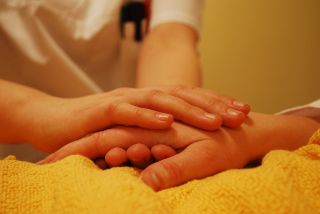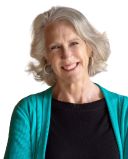Aging
Who Will Take Care of You When You're Old?
Personal Perspective: A non-parent on later-life planning.
Posted July 4, 2024 Reviewed by Kaja Perina
Key points
- No one is honor-bound to care for people who don't have kids. We need a team and a plan.
- Every arrangement made now is a gift in the future to our loved ones.
- Resources abound that help guide the process.

Who will take care of me when I’m old? I will.
By planning now for my elder years, surrounding myself with a team of people I trust and managing financial resources I continue to accumulate, I aim to minimize the burden of care my loved ones will shoulder if I can’t manage my own affairs.
With no children of my own, no one is morally obliged to step up and care for me as I age. It’s a volunteer job, even when supplemented with paid experts. I imagine that’s why parents are flummoxed about who will show up for us. But parents should worry, too.
Planning for our elder years benefits everyone's loved ones, non-parents and parents alike. Parents whose kids live far away or from whom they are estranged. Parents of children ill-suited to the serious business of caregiving. People who live in a state of denial that someday they’ll need care of some sort. People who are scared to start taking care of their future selves today.

What may seem a daunting chore is really a team-building exercise. In Eldercare 101: A Practical Guide to Later Life Planning, Care, and Wellbeing, Mary Jo Saavedra has assembled a team of experts who offer tools and practical advice about what she calls the Six Pillars of Aging Wellbeing—legal, living environment, spiritual, social, medical, and financial. I bought a copy for each of my personal representatives.
My team of professionals includes my financial planners (childfree), attorney (step-mother), and doctor (mom), each of whom is at least twenty years younger than I. Three of my four personal representatives (medical and finances) are non-parents. I purposefully chose team members who could identify with my situation as a non-mom.
I’ve had a serious conversation with my doctor about my end-of-life wishes and key contact people. I was pleased when she took notes in my chart and read them back to me to verify. She’s also got a copy of my medical advance care directive.
How did I find the professionals I’ve chosen? I asked other respected non-parents who they use and set up introductory appointments to see if we clicked. I followed the same process to identify prospective retirement communities.
For my birthday, shortly after the end of my long marriage, I plunked down a deposit (80% refundable) to get on the “future resident” list at a Continuing Care Retirement Community (CCRC) nearby. With a waitlist that’s typically 5-8 years long, I’m inching up the line. When I reach the top, I’ll stay there, even if I’m still years away from making a move. I take great comfort in knowing that when the time comes, I probably won’t have to scramble for a place to live.
My current challenge is figuring out what will trigger this big decision. Every community I’ve visited says it’s best to move sooner than you think you’re ready. The practical side of this advice is improved odds of avoiding a medical diagnosis that might impact my residency. And there’s also the energy involved in moving, meeting people, and becoming familiar with the lifestyle.

A definite benefit of starting my search early is that each community has a slightly different contractual arrangement. Some offer 50-80% refundable entry fees, though the small print dictates whether that option stays in place indefinitely or expires after a certain time span—3-5 years after moving in, say. I can’t imagine trying to understand these terms and conditions were I at a more advanced age.
It really helps that my financial planners are non-parents. They get me, and they ask great questions. Questions that matter in their lives, too, so I feel encouraged to share my progress and concerns.
Not everyone is in a position to engage a financial planner, I know, but there are resources available specifically for those without kids.
My ninety-year-old friend Wendy was late to the planning party. She’s mentored me over the years about so many topics, and I’m happy to share what I’ve learned. She scrambled to find people willing to help her, then expedited the paperwork. When later she expressed doubts about some of her hasty decisions, I reminded her she could change her plans any time. The key is to get something in writing and refine it afterwards.
Ralph Waldo Emerson is credited with writing, “Life is a journey, not a destination.” Every one of us will make it to our life’s end. Some will be better prepared than others. Every arrangement we put in place today is a gift to the loved ones we will one day leave behind.




